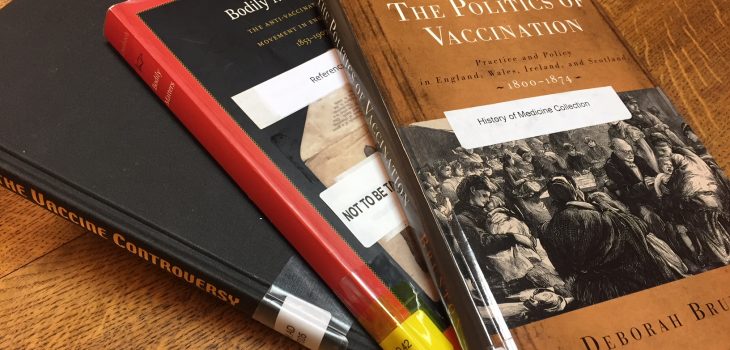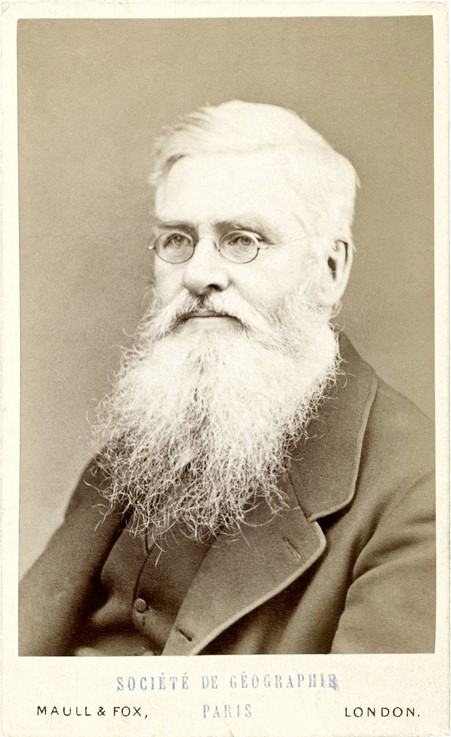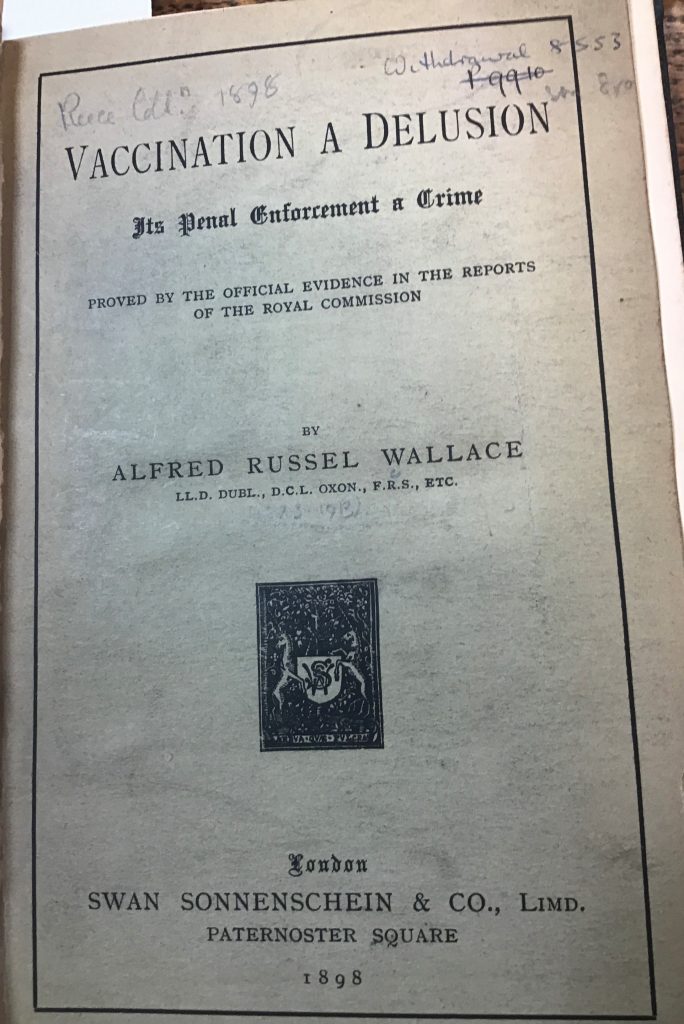ALFRED RUSSEL WALLACE (1823-1913) : British naturalist, humanist, geographer, social critic… and anti-vaccination activist(!)
Alfred Russel Wallace was one of the founders of evolutionary biology. In 1858 he and Charles Darwin jointly proposed a theory for the process of evolution by natural selection before a meeting of eminent scientists at the Linnean Society of London. It was the catalyst that Darwin needed to finish writing The Origin of Species published in 1859.
Wallace, by profession a natural history collector, developed his ideas about natural selection after spending many years in the rainforests of the Amazon (1848-1852) and the Malay Archipelago (Malaysia and Indonesia) (1854-1862). Wallace wrote books and many papers about his travels and collections and was elected a Fellow of the Royal Society for his contributions to science. But, after returning to England in 1862, Wallace changed and eventually he gave up natural history to campaign for social justice. One of the causes Wallace took up was anti-vaccination, the movement that opposed the compulsory vaccination laws whereby all children had to be vaccinated against smallpox. Wallace argued against compulsory vaccination and two of his publications on the subject are held in the library (Wallace 1889, 1898). His theory was later dismissed on the grounds that he had mis-interpreted the statistical data.
Wallace’s transformation from a highly respected naturalist to a social campaigner was an unusual path. His contributions as an activist were modest but dominated his later years with the result that Wallace’s important contribution in 1858 to the development of evolutionary biology has tended to be overlooked.
References:
WALLACE, A.R., 1889. Forty-five years of Registration Statistics, proving Vaccination to be both Useless and Dangerous. 2nd ed. London : E.W. Allen (LSHTM Library Reece Collection Vol. 29 : 6). (First published in 1885). Available online here: https://archive.org/details/b2136140x
WALLACE, A.R., 1898. Vaccination a delusion : its penal enforcement a crime, proved by the official evidence in the Reports of the Royal Commission. London : Swan Sonnenschein (LSHTM Library Reece Collection 1898). Available online here: https://archive.org/details/b2136140x
Further reading:
FICHMAN, M. & KEEELAN, J.E., 2007. Register’s logic: the anti-vaccination arguments of Alfred Russel Wallace and their role in the debates over compulsory vaccination in England, 1870-1907. Studies in History and Philosophy of Biological and Biomedical Sciences 38 : 585-607. (doi:10.1016/j.shpsc.2007.06.006)
SMITH, C.H. & BECCALONI, G. (eds), 2008. Natural selection and beyond. The intellectual legacy of Alfred Russel Wallace. Oxford : Oxford University Press.
WEBER, T.P., 2010. Alfred Russel Wallace and the Antivaccination movement in Victorian England. Emerging Infectious Diseases 16 (4) : 664-668. doi:10.3201/eid1604.090434; https://wwwnc.cdc./gov/eid/article/16/4/09-0434_article https://www.ncbi.nlm.nih.gov/pmc/articles/PMC3321934/
Copies of Wallace’s books on anti-vaccination were acquired with the Reece Collection of books and pamphlets on smallpox and vaccination of Dr. Richard James Reece (1862-1924), a medical inspector with the Local Government Board. Part of the collection was sold to LSHTM in 1925. In 1930 Dr Hugh Macewan donated the remainder. The collection consists of 381 books, 30 volumes of pamphlets, 53 volumes of press cuttings (1881-1902) and eight boxes of pamphlets.
The LSHTM Rare Books blog series is an occasional posting highlighting books that are landmarks in the understanding of tropical medicine and public health. The Rare Books Collection was initiated by Cyril Cuthbert Barnard (1894-1959), the first Librarian, from donations and purchases, assisted with grants from the Carnegie United Kingdom Trust. There are approximately 1600 historically important rare and antiquarian books in the Rare Books Collection.
Many of the LSHTM Library’s rare books were digitised as part of the UK Medical Heritage Library. This provides high-quality, copyright-free downloads of over 200,000 books and pamphlets from the 19th and early 20th century. To help preserve the rare books, please consult the digital copy in the first instance.
If the book has not been digitised or if you need to consult the physical object, please request access on the Library’s Discover search service. Use the search function to find the book you would like to view. Click the title to view more information and then click ‘Request’. You can also email library@lshtm.ac.uk with details of the item you wish to view. A librarian will get in touch to arrange a time for you to view the item.
Researchers wishing to view the physical rare books must abide by the Guidelines for using the archives and complete and sign a registration form which signifies their agreement to abide by the archive rules. More information is available on the Visiting the Archives webpage.
You will find the first in this blog series available here: Henry Vandyke Carter (1831-1897): LSHTM Rare Books blog series No. 1 – Library & Archives Service blog









